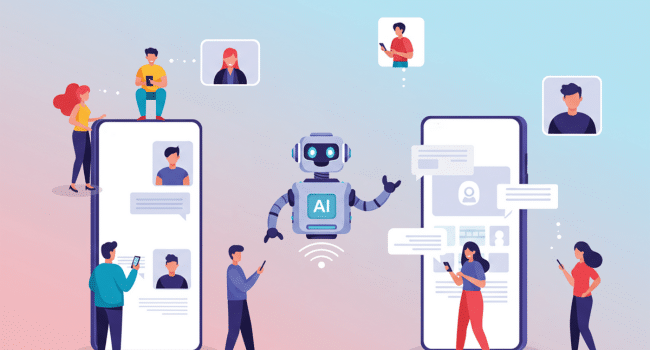Table of Contents
Generative AI, a subset of artificial intelligence, is designed to create new content by learning from existing data. Unlike traditional AI, which follows predefined instructions, generative AI uses deep learning algorithms to generate outputs such as text, images, and even music. This form of AI mimics cognitive processes, allowing it to produce creative and innovative solutions. As industries continue to embrace digital transformation, generative AI is rapidly gaining traction due to its ability to enhance productivity and innovation.
The manufacturing sector, known for its reliance on precision and efficiency, is poised to benefit significantly from generative AI. By integrating this technology, manufacturers can automate complex processes, reduce waste, and optimize resource allocation. Generative AI can analyze vast amounts of data to identify patterns and predict outcomes, enabling manufacturers to make informed decisions and streamline operations.
Moreover, generative AI is not limited to improving existing processes; it also opens up new possibilities for innovation. In manufacturing, this means the ability to design products that were previously unimaginable. By leveraging AI-driven design tools, manufacturers can experiment with novel materials, structures, and functions, leading to groundbreaking advancements in product development. As the manufacturing landscape evolves, generative AI stands at the forefront, ready to redefine the industry.
Generative AI Applications in Manufacturing Processes
The application of generative AI in manufacturing extends to several key areas, each offering distinct advantages. One prominent application is in product design and prototyping. Generative AI can rapidly generate design variations based on specific parameters and constraints, allowing engineers to explore a broader range of possibilities. This capability not only accelerates the design process but also enhances the quality and functionality of the final product.
Another crucial application of generative AI in manufacturing is predictive maintenance. By analyzing historical data from machinery and equipment, generative AI algorithms can forecast potential failures before they occur. This predictive capability allows manufacturers to perform maintenance proactively, reducing downtime and extending the lifespan of machinery. Consequently, companies can achieve significant cost savings and improve overall operational efficiency.
Generative AI also plays a transformative role in supply chain optimization. By processing data from various sources, such as suppliers, inventory systems, and logistics channels, AI models can provide insights into supply chain dynamics. Manufacturers can use these insights to optimize inventory levels, reduce lead times, and enhance supplier relationships. The result is a more resilient and responsive supply chain, capable of adapting to changing market conditions and customer demands.
How to Get Started with Generative AI in Your Manufacturing Business
Embarking on the journey of integrating generative AI into a manufacturing business requires careful planning and execution. The first step is to conduct a thorough assessment of the current operations and identify areas where AI can add the most value. This involves analyzing existing processes, evaluating technological readiness, and setting clear objectives for AI implementation. By understanding the specific needs and challenges of the business, manufacturers can tailor their AI strategies for maximum impact.
Once the assessment is complete, the next step is to invest in the necessary infrastructure and talent. Implementing generative AI requires robust computing power and access to large datasets. Manufacturers should consider partnering with technology providers or investing in cloud-based solutions to meet these requirements. Additionally, building a skilled team with expertise in AI, data science, and manufacturing processes is essential to successfully deploy and manage AI solutions.
Finally, manufacturers should adopt a phased approach to AI integration. Starting with pilot projects allows companies to test the technology in a controlled environment and gather valuable insights. These pilot projects can serve as proof of concept, demonstrating the potential benefits of AI before scaling up. By iterating on initial successes and addressing any challenges that arise, manufacturers can gradually expand AI applications across the organization, ensuring a smooth transition to a more intelligent manufacturing process.
Embracing the Change in the Manufacturing Landscape
As the manufacturing industry continues to evolve, the adoption of generative AI represents a pivotal shift towards greater innovation and efficiency. By harnessing the power of AI, manufacturers can unlock new levels of creativity, optimize operations, and build more resilient supply chains. The potential for generative AI to revolutionize manufacturing is immense, offering a competitive edge to those who embrace it.
However, the journey towards AI-driven manufacturing is not without its challenges. Companies must navigate issues such as data privacy, ethical considerations, and workforce adaptation. By addressing these challenges thoughtfully and proactively, manufacturers can ensure that the integration of AI is both responsible and beneficial for all stakeholders.
In conclusion, the transformation of the manufacturing industry through generative AI is not just a possibility—it is an imperative. As manufacturers consider their next steps, the call to action is clear: embrace the change, invest in AI capabilities, and lead the charge towards a more innovative and sustainable future. For more information on how generative AI can transform your manufacturing business, explore industry resources, engage with technology experts, and take the first step towards a smarter tomorrow.
To explore how generative AI can transform your manufacturing processes, contact our experts today. Discover tailored solutions that fit your business needs and unlock the full potential of AI in manufacturing. Don’t miss the opportunity to stay ahead in an evolving industry—reach out now for more information here.
